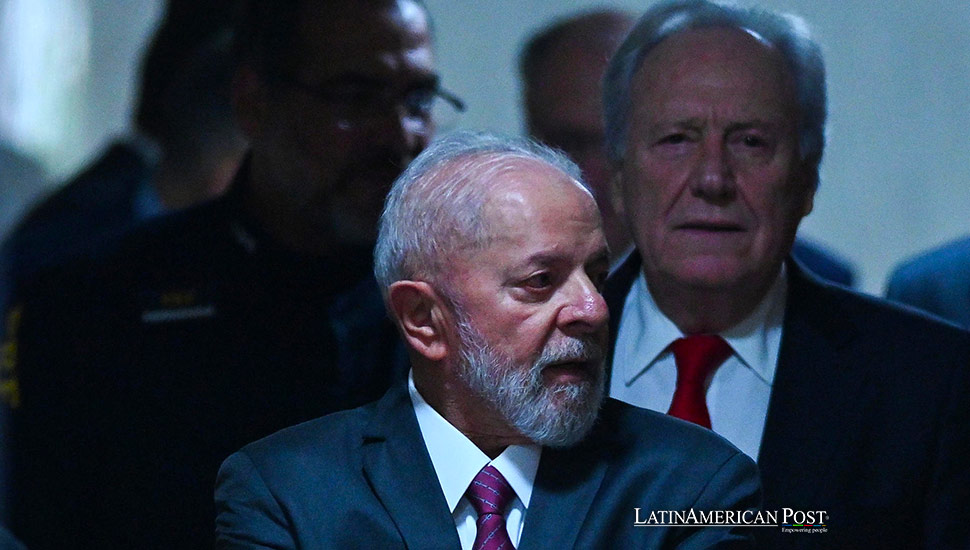Brazil Pushes Swift Action Against Amazon Crime

Brazilian President Luiz Inacio Lula da Silva urges expedited actions to combat organized crime in the Amazon, emphasizing the need to protect the rainforest from illegal activities contributing to its destruction. Significant international cooperation and funding support these efforts.
Brazilian President Luiz Inacio Lula da Silva has called on his government to expedite actions in the Amazon to combat organized crime that has significantly contributed to the destruction of the world’s largest tropical rainforest.
At an event on Monday marking the transfer of 318 million reais ($58.6 million) to fund the AMAS security plan, Lula expressed frustration over the slow progress. “We need to speed up the process because my term is only four years. If we cannot execute this plan, someone else will come along and do nothing,” he said.
The resources for this initiative come from the $1.3 billion Amazon Fund, initially set up by Norway to support sustainability and combat illegal deforestation in the Amazon. Managed by Brazil’s National Development Bank (BNDES), the fund has received donations from Germany, Britain, Denmark, the European Union, and the United States.
International Cooperation to Combat Environmental Crimes
The Amazon security plan is the first project sponsored by the Amazon Fund to tackle environmental crimes in the vast region. The eight countries of the Amazon Basin will collaborate at the International Police Cooperation Center in Manaus, which is set to gather intelligence and coordinate enforcement operations. The center will utilize helicopters and river patrol boats and establish 34 bases across the Amazon to bolster its efforts.
Initially scheduled to begin operations in the first half of this year, the center’s launch has been delayed, highlighting the bureaucratic and logistical challenges in addressing such a vast and complex issue.
The Amazon rainforest has long been plagued by systematic destruction due to illegal logging, gold mining, and the activities of criminal gangs who use the forest as a conduit for drug trafficking and the smuggling of tropical animals. A government statement noted that Federal Police efforts to improve the tracing of gold to illegal wildcat mines will help crack down on a booming trade in the precious metal, which is increasingly smuggled out of Brazil to countries such as Switzerland, Britain, Turkey, and the United States.
Since Lula became president last year, Brazil has made significant strides in slowing deforestation in the Amazon. His administration has sought to restore Brazil’s leading role in global efforts to combat climate change. In his first year in office, deforestation in Brazil’s Amazon declined by 50%, reaching a five-year low. However, the battle against organized crime and illegal activities in the region remains a formidable challenge.
Economic and Environmental Implications
The destruction of the Amazon has far-reaching economic and environmental implications. The rainforest is a critical component of the global climate system, absorbing vast amounts of carbon dioxide. Still, it also supports a rich biodiversity and numerous indigenous communities whose livelihoods depend on its health.
Illegal activities in the Amazon, such as logging and mining, often lead to severe environmental degradation, affecting the forest’s ability to function as a carbon sink and threatening countless species with extinction. Moreover, the profits from these illegal activities often fund organized crime, exacerbating social and economic instability in the region.
Strengthening Enforcement and Cooperation
Establishing the International Police Cooperation Center in Manaus is vital to Lula’s strategy to strengthen enforcement and enhance international cooperation. By bringing together the eight countries of the Amazon Basin, the center aims to coordinate efforts more effectively and leverage shared resources and intelligence.
Given the transnational nature of many of the crimes affecting the Amazon, this collaborative approach is critical. By working together, the region’s countries can tackle the root causes of illegal activities and implement more effective measures to protect the rainforest.
Future Prospects
While the challenges are significant, the progress made under Lula’s administration provides hope. Decreased deforestation indicates that concerted efforts and international cooperation can yield positive results. However, sustained commitment and adequate resources are essential to maintain this momentum and achieve long-term success.
The AMAS security plan, backed by substantial funding from the Amazon Fund, represents a crucial step towards securing Amazon’s future. By addressing both the environmental and criminal aspects of the problem, the plan aims to create a safer and more sustainable environment for the region’s inhabitants and the global community.
The fight against organized crime and environmental destruction in the Amazon is a complex and multifaceted challenge. President Lula’s call for swift action and the establishment of the International Police Cooperation Center in Manaus underscore the urgency of the situation. With significant funding and international support, there is hope that the Amazon can be protected and preserved for future generations.
Also read: Latin American Oil Giants Among Top Global CO2 Emitters
However, the success of these efforts will depend on continued political will, practical implementation, and robust international cooperation. As the world’s largest tropical rainforest, the Amazon plays a critical role in the health of our planet, and its protection must remain a global priority.




